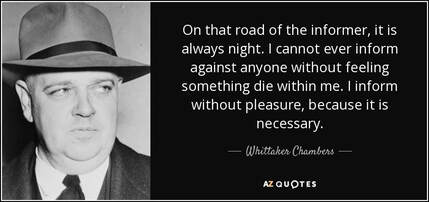|
#2 for this season is United States v. Day. The sole assigned issue in this appeal is “[w]hether attempted conspiracy . . . is a viable offense under the UCMJ.” Consistent with our holding in United States v. Riddle, 44 M.J. 282, 285 (C.A.A.F. 1996), we answer this question in the affirmative. We therefore affirm the judgment of the United States Air Force Court of Criminal Appeals (AFCCA). This was a guilty plea case with what appears to be standard language to waive all waivable motions. In short, Appellant informed JM that she wanted to kill her husband to obtain the benefits of a life insurance policy. Appellant and JM agreed to meet in a Walmart parking lot so that JM could supply Appellant with a substance for poisoning her husband. When they met, Appellant paid JM $100, and JM provided Appellant with a clear plastic bag containing a white substance that JM said was fentanyl. Appellant did not know that JM was working as an informant for Air Force investigators and that the substance JM provided was not actually fentanyl. So the first question for Judge Maggs, writing for the court (including Sr. Judge Effron) was whether the issue presented was waived as a result of the unconditional guilty plea. At trial the MJ went through the usual colloquy with counsel about what potential issues would be waived. At no time, they were asked four times, did the defense raise a failure to state an offense as a potentially waived issue. The unconditional guilty plea continued through sentencing. On appeal to the AFCCA, Appellant argued that her pleas of guilty to the two specifications of attempted conspiracy were improvident because the specifications failed to state an offense. The AFCCA considered Appellant’s argument on the merits, relying on its discretionary authority under Article 66, UCMJ, 10 U.S.C. § 866 (2018), to correct waived legal issues. ([C]iting United States v. Hardy, 77 M.J. 438, 442-43 (C.A.A.F. 2018)). Following this Court’s decision in [United States v.] Riddle[, 44 M.J. 282 (C.A.A.F. 1996)], the AFCCA concluded that the specifications of attempted conspiracy stated an offense under the UCMJ. On the waiver issue, Judge Maggs writes that, The Government contends that we cannot review Appellant’s argument that “attempted conspiracy” is not an offense under the UCMJ because Appellant waived this issue, both by agreeing to waive all waivable motions and by making an unconditional guilty plea. Appellant responds that her objection to the specifications was not waived because the military judge told her that failure to state an offense is not a waivable issue. This Court agrees with Appellant’s argument and holds that her present argument was not waived In a footnote Judge Maggs writes that We do not address the question of whether failure to state an offense is a waivable objection. This Court previously stated failure to state an offense was not waived by a guilty plea. Schweitzer, 68 M.J. at 136. The President later amended R.C.M. 907(b)(2)(E) to include failure to state an offense in a list of waivable objections. We see no need to address the question because of our conclusion that the objection was not waived in this case. See United States v. Sanchez, 81 M.J. 501, 503-04 (A. Ct. Crim. App. 2021) (addressing this issue). Having rejected the Government's various arguments for waiver, Judge Maggs takes on the issue. While having found no waiver the court does find a forfeiture. So the issue is reviewed under the standard plain error rule. The court finds no error thus "no plain error." The Appellant advanced four arguments why Riddle should not be applied, none of the arguments were persuasive for the court. First, Appellant observes that Congress amended Article 82, UCMJ, in 2016. This amendment created a general solicitation statute from a specific solicitation statute which previously only prohibited solicitation to commit desertion, misbehavior before the enemy, and sedition. Compare Article 82, UCMJ, 10 U.S.C. § 882 (2012), with Article 82(a), UCMJ, 10 U.S.C. § 882(a) (2018). Appellant asserts that a general solicitation statute undercuts the third rationale of Riddle: attempted conspiracy was “particularly appropriate” in a jurisdiction that does not have a general solicitation statute. AFCCA affirmed. In this case, the evidence that JM was working for the Government as an informer prevented Appellant from being guilty of an actual conspiracy, but not an attempted conspiracy. Likewise, although the evidence that Appellant and TL failed to find a mutually convenient time to meet may have prevented them from being guilty of an actual conspiracy, it did not prevent Appellant from being guilty of an attempted conspiracy. Cheers.
1 Comment
Brenner Fissell
12/14/2022 18:08:52
This one is pretty interesting! Would be good for a crim casebook.
Reply
Your comment will be posted after it is approved.
Leave a Reply. |
Disclaimer: Posts are the authors' personal opinions and do not reflect the position of any organization or government agency.
Co-editors:
Phil Cave Brenner Fissell Links
SCOTUS CAAF -Daily Journal -2024 Ops ACCA AFCCA CGCCA NMCCA JRAP JRTP UCMJ Amendments to UCMJ Since 1950 (2024 ed.) Amendments to RCM Since 1984 (2024 ed.) Amendments to MRE Since 1984 (2024 ed.) MCM 2024 MCM 2023 MCM 2019 MCM 2016 MCM 2012 MCM 1995 UMCJ History Global Reform Army Lawyer JAG Reporter Army Crim. L. Deskbook J. App. Prac. & Pro. CAAFlog 1.0 CAAFlog 2.0 Archives
July 2024
Categories
All
|



 RSS Feed
RSS Feed